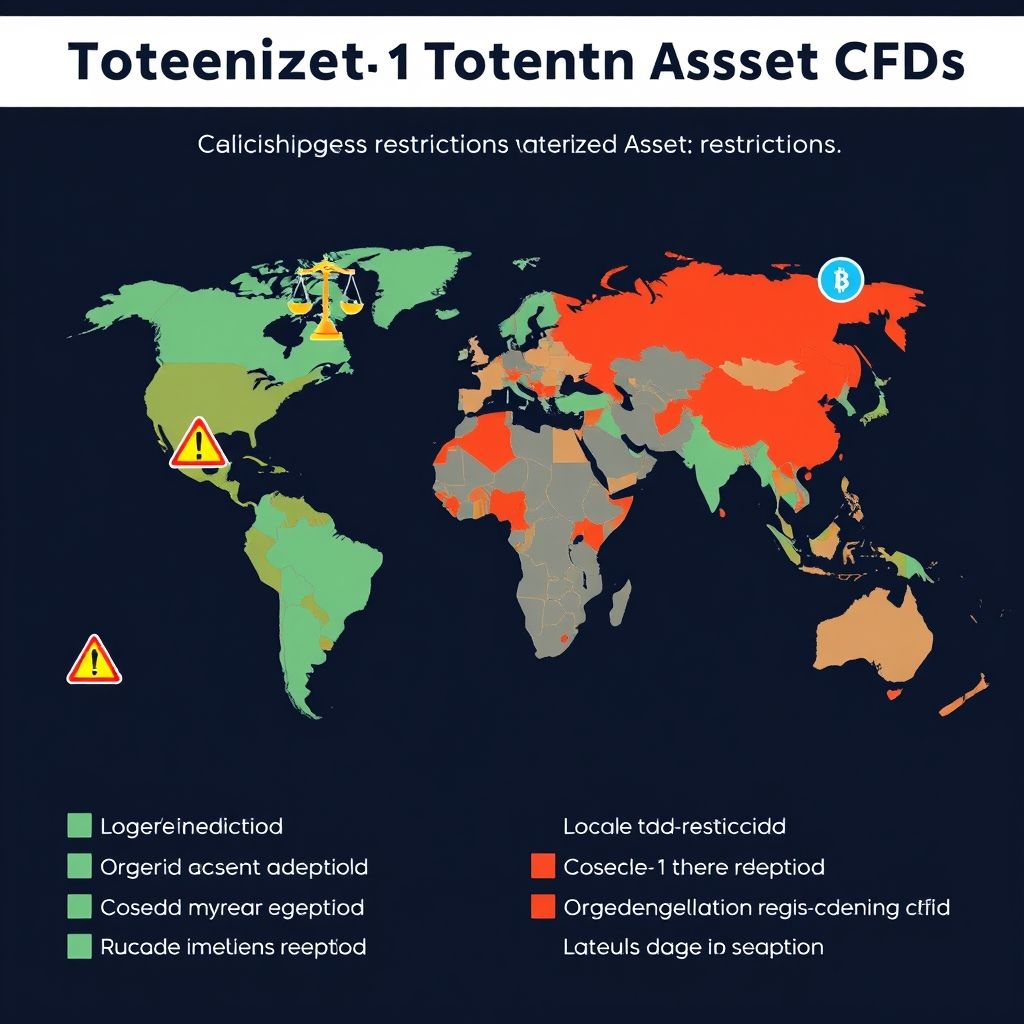Are Tokenized Asset CFDs banned or restricted in certain jurisdictions?
Are Tokenized Asset CFDs Banned or Restricted in Certain Jurisdictions?
Imagine dialing into your favorite trading platform, ready to diversify your portfolio with a blend of stocks, crypto, commodities, or forex鈥攖hen suddenly hitting a roadblock. You might wonder: Are these innovative financial instruments like tokenized asset CFDs even legal everywhere? The landscape is a lot more complex than just open markets and trading floors. Let鈥檚 break down what鈥檚 really happening across different jurisdictions and what it could mean for your trading future.

The Rise of Tokenized Asset CFDs: What鈥檚 the Hype?
Tokenized assets鈥攖hink of converting real-world stocks, commodities, or indices into digital tokens鈥攁re transforming how people access traditional markets. As CFDs (Contracts for Difference) allow trading on price movements of these assets without owning the underlying items, combining them unlocks incredible flexibility. With tokenization, the barrier to entry lowers鈥攏o need for huge capital, just a digital wallet and some savvy. But here鈥檚 the catch: regulation governing these innovations isn鈥檛 uniform or always friendly.
Who Bans or Restricts? Navigating Global Boundaries
In some regions, regulators aren鈥檛 shy about drawing lines in the sand. For example, the U.S. has a stringent stance on many unregulated derivatives and digital financial instruments. Trading tokenized asset CFDs often falls into a regulatory gray area鈥攆alling under securities law or derivatives regulations that prevent their unrestricted sale. The SEC鈥檚 cautious approach can mean bans or severe restrictions, especially if a product is deemed speculative or risky.
Across Europe, the situation varies. Countries like the UK remain open to innovative trading, but they鈥檙e constantly tightening rules around CFD leverage and disclosures. Meanwhile, elsewhere鈥攕uch as parts of Asia or Latin America鈥攔egulatory clarity is still evolving, sometimes allowing these instruments with strict licensing, other times outright banning them altogether.
Why Are These Restrictions in Place?
It鈥檚 largely about investor protection. The decentralized and often opaque nature of tokenized CFDs can amplify risks鈥攖hink sudden volatility, hacking, or lack of clear oversight. Additionally, regulators worry about market manipulation, fraud, and the difficulty in policing cross-border transactions. Some jurisdictions see these products as too complex or risky for retail traders, especially if they don鈥檛 fully understand the mechanics behind tokenization or leverage.
The Industry鈥檚 Response & Future Trends
Where restrictions exist, many firms are pivoting towards compliant models鈥攍ike offering regulated tokenized assets or focusing on transparency and education. The biggest trend on the horizon is the integration of smart contracts and AI-driven trading bots, which could make trading safer and more efficient. Automated strategies can help manage leverage risks, and smart contracts ensure trades execute smoothly within legal frameworks.
Decentralized finance (DeFi) platforms are also exploring ways to cut out middlemen, but that鈥檚 a double-edged sword鈥攚hile reducing costs and increasing access, it raises questions about security and regulation. The future might see hybrid models that combine centralized oversight with decentralized tech, ensuring safety without stifling innovation.
What Should Traders Keep in Mind?
Always check your local laws before jumping into tokenized CFD trading. Since regulation can change quickly鈥攚hat鈥檚 permissible today might be restricted tomorrow鈥攕taying informed is key. Use reliable platforms with strong cybersecurity measures, and consider limiting leverage to manage risk. Diversify your assets鈥攄on鈥檛 put all your eggs in one digital basket, especially in such a fledgling segment.
Why the Future Looks Bright
Despite hurdles, the potential of tokenized assets and CFD trading isn鈥檛 going anywhere. With advancements like AI-enhanced analytics, real-time blockchain verification, and smarter contracts, this could become the most accessible, transparent, and efficient way to trade instruments across markets. Its about breaking down walls鈥攇iving traders worldwide access to assets once reserved for institutional players.
With the march toward decentralization and tech-driven innovation, the industry will likely see more flexible, compliant solutions that balance opportunity with safety. The key is to stay ahead of the regulatory wave and adopt tools that keep your trades secure and strategic.
Trading smarter, safer, and more connected鈥攚here innovation meets opportunity. That鈥檚 the future of tokenized asset CFDs.
YOU MAY ALSO LIKE